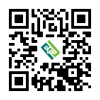PEMBINAAN AGAMA ISLAM DALAM KELUARGA MUSLIM DI MUSLIMAT MOJO ULUJAMI KAB.PEMALANG
Abstract
The importance of fostering the Islamic religion in the family environment is crucial in this era of rapid change and globalization. This study was conducted in Mojo Ulujami, Pemalang Regency, Central Java, which is famous for its cultural diversity and religious community. This research aims to increase religious understanding and practice among Mojo Ulujami Muslim families, not only in worship rituals but also the application of Islamic moral and ethical values in everyday life. The research method used is qualitative with interview techniques, observation and group discussions. The results showed a significant increase in understanding of religion, positive changes in daily behavior, as well as active participation in religious activities. This program successfully overcomes communication challenges and resistance to change with a participatory and holistic approach. Continuous evaluation is carried out to monitor and improve program effectiveness. These results provide a basis for developing sustainable Islamic religious development programs in similar communities.
References
Alavi, M., & Leidner, D.E. (2001).Review: Knowledge management and knowledge management systems: Conseptual foundations and research issue. MIS Quarterly, 25(1), 107-136.
Anderson, J.Q., & Rainie, L.(2010. The future of the Internet. Pew Internet & American Life Project.
Brown, J. S., Collins, A., & Duguid, P. (1989). Situated cognition and the culture of learning.Educational Researcher, 18(1), 32-42.
Collins, A., & Halverson, R. (2009). Rethinking education in the age of technology: The digital revolution and schooling in America. Teachers College Press.
Dede, C. (2009). Immersive interfaces for engagement and learning. Science, 323(5910), 66-69.
Ertmer, P. A., & Newby, T. J. (1993). Behaviorism, cognitivism, constructivism: Comparing critical features from an instructional design perspective. Performance Improvement Quarterly, 6(4), 50-71.
Freire, P. (1970). Pedagogy of the oppressed. Continuum.
Gee, J.P. (2003). What video games have to teach us about learning and literacy. Computers in Entertainment (CIE), 1(1), 20.
Hmelo-Silver, C. E. (2004). Problem-based learning: What and how do students learn?. Educational Psychology Review, 16(3), 235-266.
Johnson, L., Adams Becker, S., Cummins, M., Estrada, V., Freeman, A., & Ludgate, H. (2013). NMC horizon report: 2013 higher education edition. The New Media Consortium.
Merrill, M. D. (2002). First principles of instruction. Educational Technology Research and Development, 50(3), 43-59.
Mishra, P., & Koehler, M. J. (2006). Technological pedagogical content knowledge: A framework for teacher knowledge. Teachers College Record, 108(6), 1017-1054.
Puentedura, R. R. (2006). Transformation, technology, and education. Presentation at the Maine Learning Technology Initiative Summer Institute.
Roseth, C. J., Johnson, D. W., & Johnson, R. T. (2008). Promoting early adolescents' achievement and peer relationships: The effects of cooperative, competitive, and individualistic goal structures. Psychological Bulletin, 134(2), 223-246.
Siemens, G. (2004). Connectivism: A learning theory for digital age. International Journal of Instructional Technology and Distance Learning, 2(1), 3-10.
So, H. J., & Kim, B. (2009). Learning about problem based learning: Student teachers integrating technology, pedagogy and content knowledge. Australasian Journal of Educational Technology, 25(1), 101-116.
UNESCO. (2011). UNESCO ICT competency framework for teachers. Paris: United Nations Educational, Scientific and Cultural Organization.
Warschauer, M. (2003). Technology and social includion: Rethinking the digital divide. MIT Press.
Warschauer, M., & Matuchniak, T. (2010). New technology and digital worlds: Analyzing evidence of equity in access, use, and outcomes. Review of Research in Education, 34(1), 179-225.
Wenger, E. (1998). Communities of practice: Learning, meaning, and identity. Cambridge University Press.
Downloads
Published
How to Cite
Issue
Section
License
Copyright (c) 2024 PROSINA PPG : Prosiding Nasional Pendidikan Profesi Guru

This work is licensed under a Creative Commons Attribution 4.0 International License.









